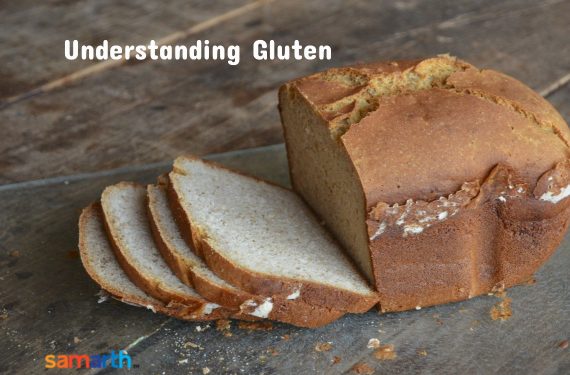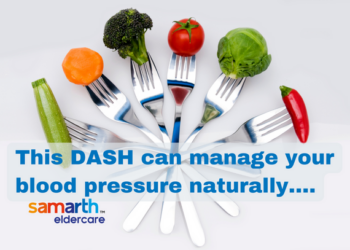It is rather commonplace for people to talk about gluten-free diets and gluten intolerance, etc. There was a time when such things were unheard of in our country. But, today, there is a growing awareness about such terms, and many people understand what it is. To make things simpler, here is a simple rundown of common questions which most people ask like:
- What is gluten?
- Why do people take to gluten-free diets?
- Should I avoid gluten or not?
What is gluten?
Simply put, it is nothing but a family of proteins found in grains such as wheat, barley, rye, etc. In India, we do consume a lot of wheat and barley, and hence, it is important to understand why there is a discussion about this protein. Two of the prime proteins that are termed as glutens are glutenin and gliadin. Perhaps, you may be able to relate to the term, if you break up the word and identify with ‘glu’ (glue).

Join Now >
Indeed, it is these proteins that provide the glue-like (sticky) effect to the dough that you prepare from the flour. This property makes the dough elastic and also makes it easy for rising during the baking process. Also, these proteins provide a nice chewy texture to the foods prepared from it, as well. The gliadin, among these, is said to have a lot of adverse health impacts on people.
Why is a gluten-free diet advocated so much?
These days, if you look at the ingredient labels on most products, you may find the gluten-free indicated therein. This is only because many people have consciously taken to a gluten-free diet. So, why are more and more people taking to gluten-free diets? One of the most basic explanations for this is the fact that many people do suffer from intolerance to gluten in many ways. Perhaps, you may go through a whole lifetime without actually identifying it, but it occurs in certain ways.
People suffering from this condition may have constant digestive issues that are not being diagnosed properly. Being anemic, despite eating well, can be another symptom that indicates gluten intolerance in people. However, it is important to keep a note and see if the symptoms occur every time you eat a gluten-inclusive meal. If you suspect so, you may please visit a doctor, who after examination, and necessary probing, may prescribe certain tests to determine, if you are indeed sensitive to gluten. If found so, you may have to give up on gluten. The most extreme form of gluten intolerance is what is termed as Celiac disease, which manifests as an autoimmune disorder. It is said that the world over, 80% of the people who have Celiac disease, are not even aware of its existence!
The others, who give up on gluten, do so to avoid the general negative health effects that the protein gliadin brings about. Also, gluten is bad for people with a wheat allergy and a few more diseases. So, considering the fact, that one may be gluten sensitive, and also the other ill effects that may happen, many people believe it is best to give up on gluten-totally and turn to gluten-free diets. It also means that if you have been having a diet which included wheat and barley, and are quite healthy, and did not find any issues, especially digestive or allergic, so far, then perhaps, there is no need to change your diet drastically.
Gluten-free diet
However, in the interest of health, if you feel that you may want to go gluten-free, then there is no harm as well. There are many grains, seeds, and roots, which are gluten-free like rice, corn, millet, flax, buckwheat (kuttu ka atta), oats, jowar, or sorghum, arrowroot (khooya, tikhur), tapioca, etc. The other foods that are safely gluten-free to consume are seafood, meat, eggs, dairy products, fruits and veggies, nuts, etc.
The bottom line is that going gluten-free is healthy, as gluten does not provide you anything extra than most other foods in our diet don’t. So, if you can survive healthily without eating gluten, you may choose to do so.











